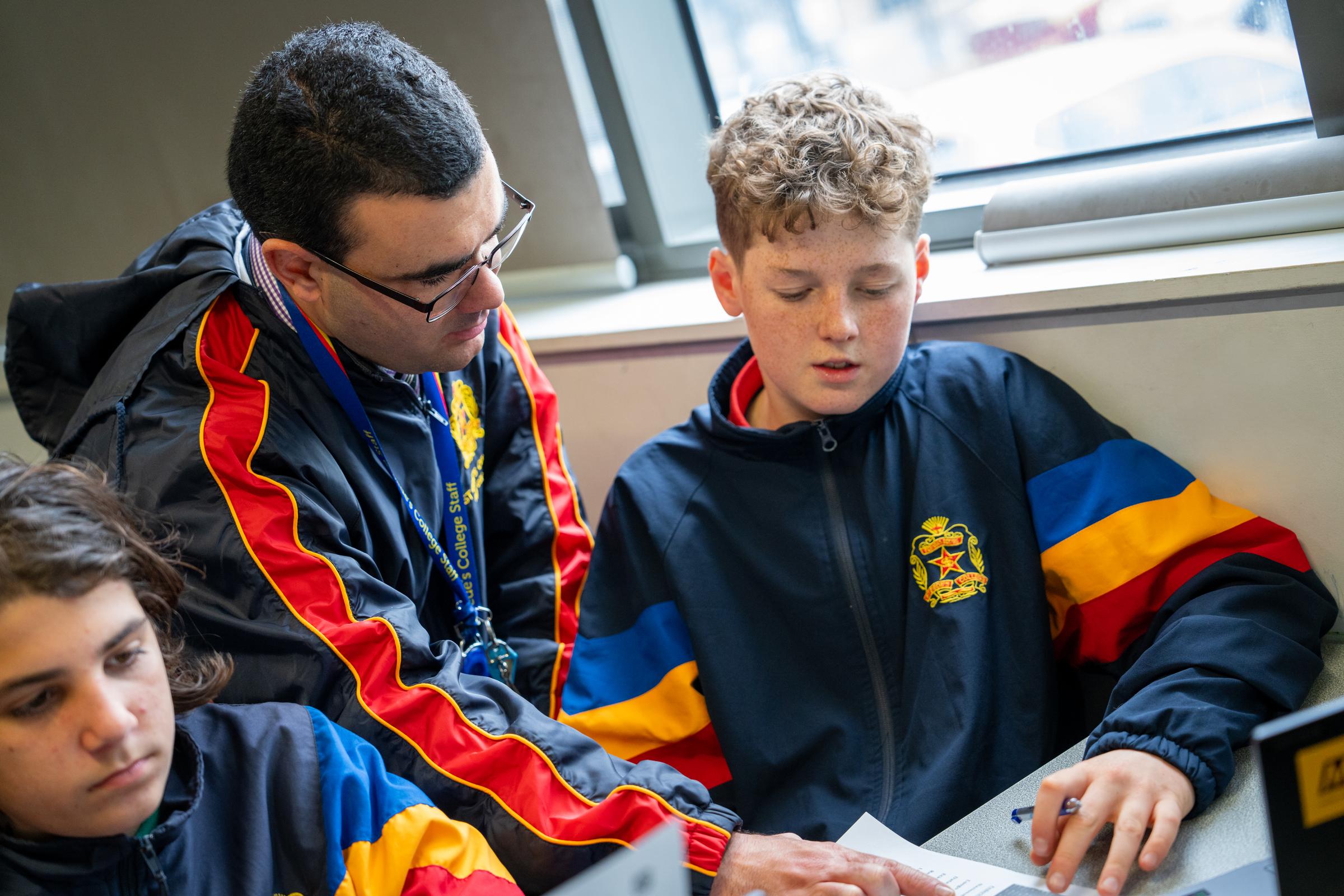Teaching and Learning

Learning Habits Rubric
We have established the use of the Learning Habits Rubric across all classes at St Bede’s College and students are becoming more familiar with the language and its purpose. Developing good learning habits is crucial for students as it sets the foundation for academic success and lifelong learning.
Rubrics offer direction for improvement and offer detailed feedback on strengths and areas for improvement, guiding students on how to enhance their learning habits. Students can use rubric feedback to set specific goals for improving their study habits and academic behaviours. By understanding how their habits are evaluated, students become more accountable for their own learning.
In light of this, the College has created a student version that aligns with the reportable rubric on PAM and helps foster the understanding of the criteria in student friendly language. These posters are displayed in each classroom and demonstrate our commitment to fostering independent learners who take charge of their own learning.
You can view the poster here - Student Learning Habits
We use the Learning Habits Rubric as a means of monitoring progress throughout a student’s time at the College. For each subject area on a termly basis, teachers report to the rubric, which is accessible via PAM.
High achievement in such habits - mostly ‘Commendable’ and ‘Excellent’ results for all four criteria - will be recognised and lower achievement - particularly ‘Unacceptable’ and ‘Below Expectations’ – is cause for intervention.
In recent weeks, students in Years 9 and 10 have applied to accelerate into VCE subjects; in some cases where results were not quite where they needed to be, the habits assessments were used to assist in making a judgement.
We encourage all students and their families to engage in ongoing conversation about developing positive learning habits.
Sarah Williams
Teaching and Learning Leader - Bentleigh East Campus
Welcoming Professor Dylan Wiliam
Emeritus Professor of Educational Assessment, Dylan Wiliam will be joining St Bede's College for a very special two-day Teaching and Learning conference for our Teaching Staff this November.
Professor Wiliam will be sharing his insights on formative assessment and the role of AI in education. We very much look forward to welcoming him, learning from him and applying those learnings to our teaching practices.
Dylan Wiliam is Emeritus Professor of Educational Assessment at University College London. After a first degree in mathematics and physics, and one year teaching in a private school, he taught in inner-city schools in London for seven years.
In 1984 he joined Chelsea College, University of London, which later merged with King's College London. From 1996 to 2001 he was the Dean of the School of Education at King’s, and from 2001 to 2003, Assistant Principal of the College. In 2003 he moved to the USA, as Senior Research Director at the Educational Testing Service in Princeton, NJ. From 2006 to 2010 he was Deputy Director of the Institute of Education, University of London.
Over the last 15 years, his academic work has focused on the use of assessment to support learning (sometimes called formative assessment). He now works with groups of teachers all over the world on developing formative assessment practices.

